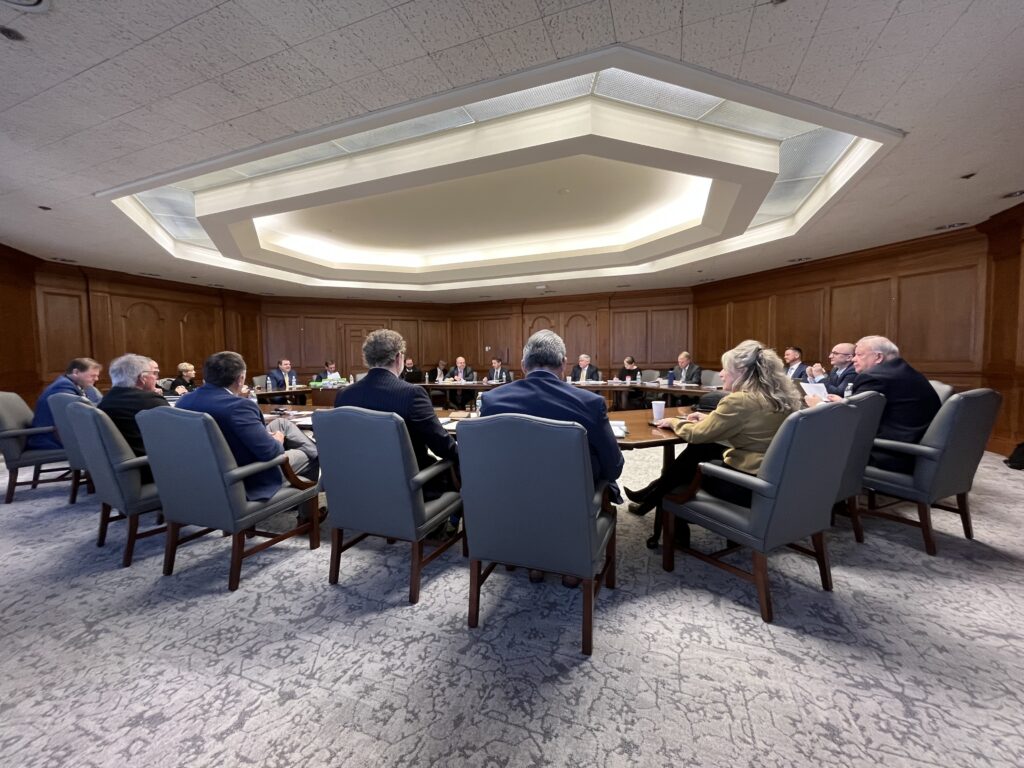The organization responsible for disseminating 72.5 percent of the state’s opioid settlement funds met Monday to discuss the publication of a website for the foundation, allowing it to publish requests for proposals (RFP) for banking and accounting services as well as an investment advisor.
The West Virginia First Foundation board moved to allow 45 days for responses to RFPs and approved a motion to partner the executive committee with board member and Parkersburg Mayor Tom Joyce, to assist the committee in approving a final proposal.
“How often does a new private foundation stand up with hundreds of millions of dollars in the state of West Virginia?” Joyce asked. “So I think we’ll get plenty of adequate responses.”
While the board is responsible for 72.5 percent of the opioid settlement funds, 24.5 percent will go directly to local governments, and the remaining three percent will be held by the state in escrow to cover any outstanding attorney’s fees.
Under the Memorandum of Understanding (MOU) that established the West Virginia First Foundation board, counties and municipalities were provided “guardrails” on how to spend their funds.
One topic of conversation during Monday’s meeting was to provide technical support and education to local governments. Jefferson County Prosecuting Attorney, and Board Chair, Matt Harvey said the foundation cannot tell localities how to spend their funds.
“It’s more so than making sure that they spend it correctly, it’s about maximizing their dollars. They have a smaller pool than the foundation,” Harvey said. “So if we can save a smaller municipality money without having to retain experts or get legal counsel on what they can and cannot do, and it’s there for the benefit of every municipality and county, cost savings to them, they take those local dollars, and they can invest more locally. That’s the overall thought on that.”
The board moved to appoint volunteers to an exploratory committee for the purpose of supporting local governments.
The board also moved to have the executive committee negotiate the hire of a potential executive director.
The treasurer of the board Jeff Sandy reported the money placed in Huntington Bank accounts is accruing interest and now totals nearly $218 million.
“As of close of business yesterday, we have earned $140,751.40 from the monies that had been placed in accounts at Huntington Bank in interest,” Sandy said. “So the total funds available as of close of business [Friday, Nov. 24, 2023] is $217,640,751.40. And we will be receiving our first bills, hopefully on Dec. 1 from the CPA firm and the law firm.”
The board then went into executive session to discuss foundation policies surrounding meeting and transparency policy.
“The proceeds were entrusted to us by the counties and municipalities, and that took a great deal of faith on their part,” Harvey said. “We want to make sure that we’re good stewards, and so we’re doing our best, and we want to put together a really good meeting and transparency policy that gives them comfort that we are being good stewards with their money and that we’re here to help.”
According to John Bsharah, an attorney representing the board, there were no actionable items from the executive session.
Appalachia Health News is a project of West Virginia Public Broadcasting with support from Charleston Area Medical Center and Marshall Health.






















